
That’s the title of Monday’s panel in the Hurvis Room of the Warch Campus Center at 6:30, and it should be a corker. Ever since the Supreme Court decided Citizens United v. Federal Election Commission this past January, all you-know-what has broken loose about money in U.S. politics. The president famously called out the court in his State of the Union address, with Justice Alito brazenly mouthing the words, “not true.” And it hasn’t gotten any friendlier from there. Now, that’s entertainment!
Of course, over here in the econ department, we wonder “Why is there so little money in U.S. politics?”
The event will cover a lot of ground, including these Common Cause talking points:
- Redistricting Reform
- Disclosure of interest-group ads and other outside spending
- Public Financing of Wisconsin Supreme Court and other state elections
- Campaign Finance Reform in Wisconsin after the U.S. Supreme Court decision on Citizens United vs F.E.C.
We will welcome panalists from both sides of the aisle, including State Representatives Penny Bernard Schaber (D-Appleton) and Dean Kaufert (R-Neenah), Andrea Kaminski from the League of Women Voters, and Jay Heck of Common Cause in Wisconsin.
Given the number of co-sponsors, I’m guessing there is ample interest. The co-sponsors are: the Lawrence Government Department, the College Republicans, the League of Women Voters of Appleton, League of Women Voters of Wisconsin, the Education Fund, the American Association of University Women – Appleton Branch, and the Wisconsin Alliance for Retired Americans.
I am moderating the event, so I hope to see you there.
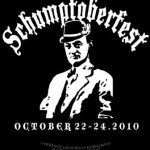
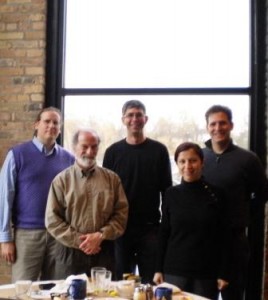
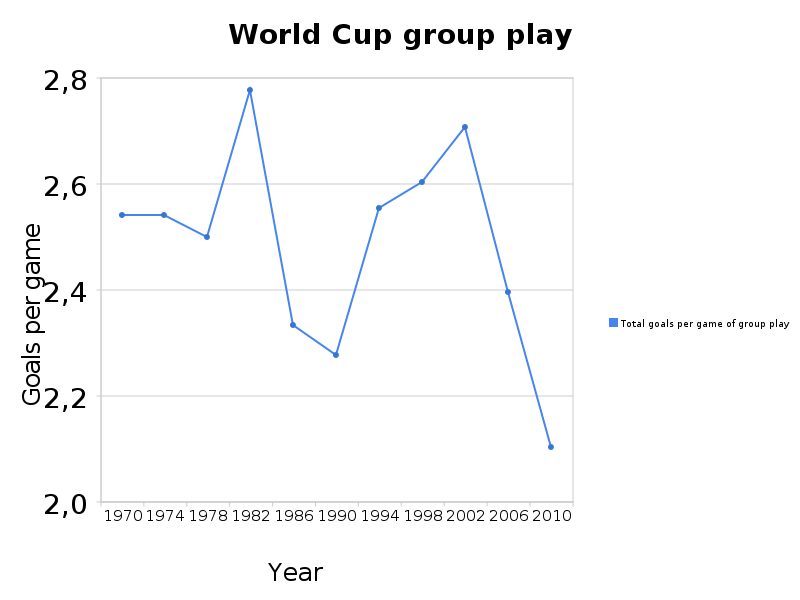

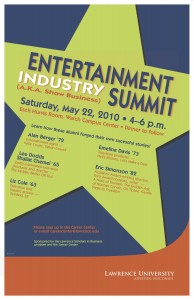
 Well, not really mad, but Professor Azzi was a bit upset that he bought a storehouse of cookies last week and we had a cancellation. Based on my current projections, today’s TBA will feature tea, coffee, cookies, and possibly a guest appearance by
Well, not really mad, but Professor Azzi was a bit upset that he bought a storehouse of cookies last week and we had a cancellation. Based on my current projections, today’s TBA will feature tea, coffee, cookies, and possibly a guest appearance by  The indefatigable Ralph Nader came, he saw, he sold some books, and he raised some hell. Are you wasting the prime of your life with hang ups you should have dealt with as a teenager? Do you find yourself spending more time looking at yourself in the mirror than keeping tabs on Congress? Mr. Nader isn’t shy about asking the tough questions.
The indefatigable Ralph Nader came, he saw, he sold some books, and he raised some hell. Are you wasting the prime of your life with hang ups you should have dealt with as a teenager? Do you find yourself spending more time looking at yourself in the mirror than keeping tabs on Congress? Mr. Nader isn’t shy about asking the tough questions. One-time Presidential spoiler (just don’t tell him that) and always consumer-rights advocate (though economists might sometimes disagree) Ralph Nader will visit campus Sunday to deliver “The Great Conversion: Environmentalism over Corporatism.” The show is in the Chapel at 7:30, and Mr. Nader will be around to talk and sign books before and after his talk.
One-time Presidential spoiler (just don’t tell him that) and always consumer-rights advocate (though economists might sometimes disagree) Ralph Nader will visit campus Sunday to deliver “The Great Conversion: Environmentalism over Corporatism.” The show is in the Chapel at 7:30, and Mr. Nader will be around to talk and sign books before and after his talk.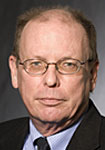
 Lawrence alum, George B. Wyeth, will kick off the Povolny Lecture Series this Tuesday, April 20, at 7 p.m. in Science Hall 102. Mr. Wyeth picked up his B.A. from Lawrence back in 1973, notably serving as editor-in-chief of The Lawrentian. He leveraged his success here into a Masters in Public Policy at UC-Berkeley and a law degree from Yale. After a stint in the private sector, he joined the U.S. Environmental Protection Agency in 1989 and is now the Director at the National Center for Environmental Innovation.
Lawrence alum, George B. Wyeth, will kick off the Povolny Lecture Series this Tuesday, April 20, at 7 p.m. in Science Hall 102. Mr. Wyeth picked up his B.A. from Lawrence back in 1973, notably serving as editor-in-chief of The Lawrentian. He leveraged his success here into a Masters in Public Policy at UC-Berkeley and a law degree from Yale. After a stint in the private sector, he joined the U.S. Environmental Protection Agency in 1989 and is now the Director at the National Center for Environmental Innovation. If you have even an inkling of interest the financial markets coordination of savings and investment, the regulation (or absence thereof) of the financial sector, or even a career in that field, you should think about coming out. (This couldn’t come at a better time for my 240 class, which is learning about the Stigler-Peltzman
If you have even an inkling of interest the financial markets coordination of savings and investment, the regulation (or absence thereof) of the financial sector, or even a career in that field, you should think about coming out. (This couldn’t come at a better time for my 240 class, which is learning about the Stigler-Peltzman Former Ambassador to India and US Under Secretary of Treasury David Mulford ’59 will be on campus next Tuesday, April 13th , and students will have two major opportunities for interaction:
Former Ambassador to India and US Under Secretary of Treasury David Mulford ’59 will be on campus next Tuesday, April 13th , and students will have two major opportunities for interaction: